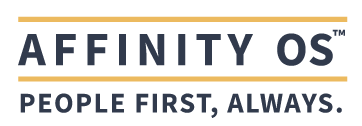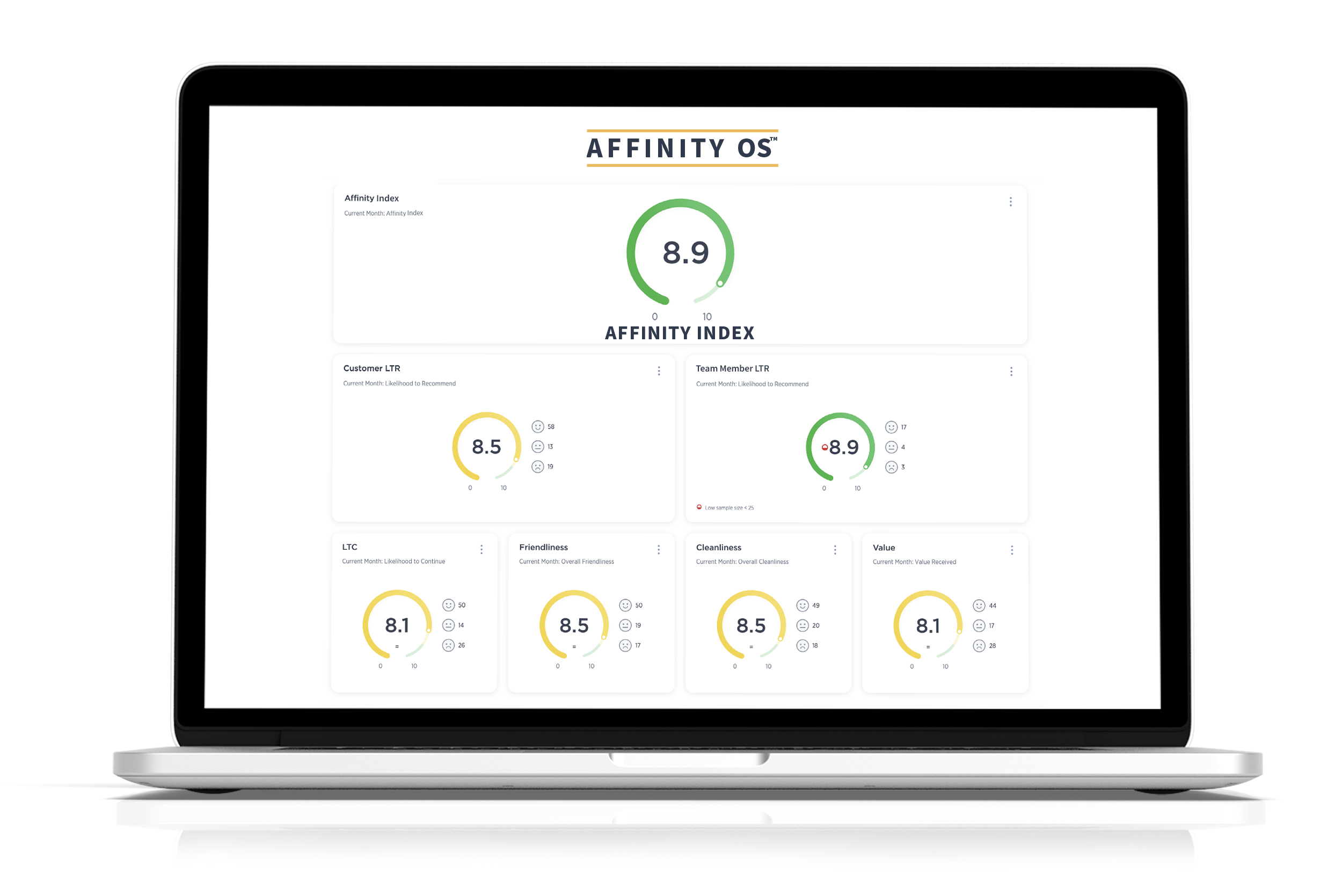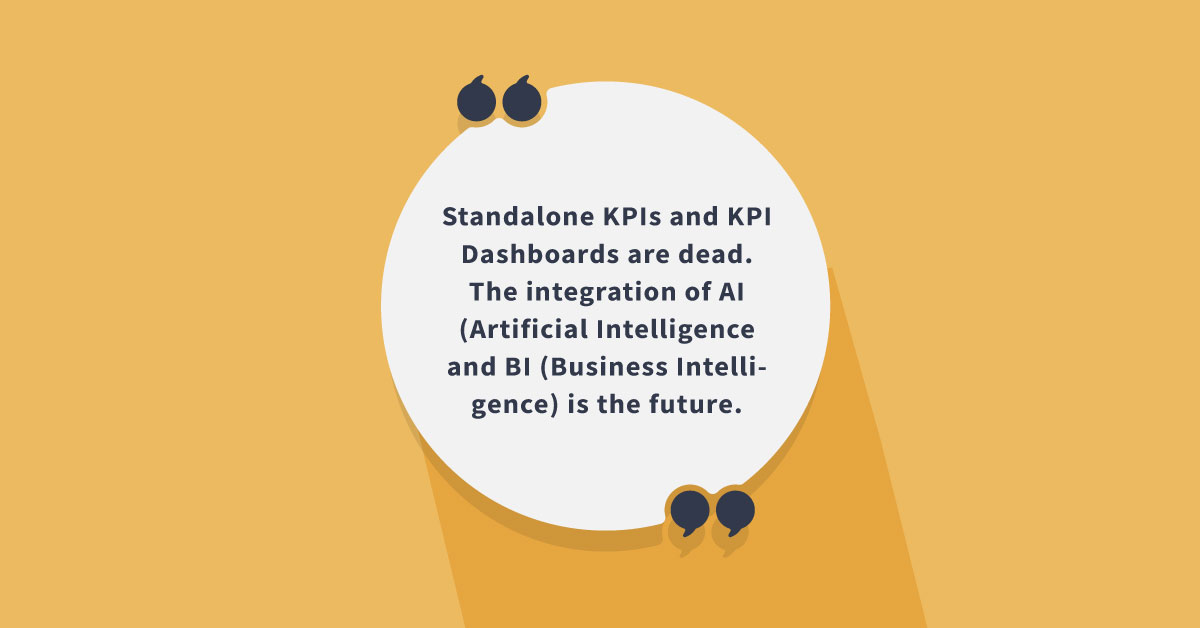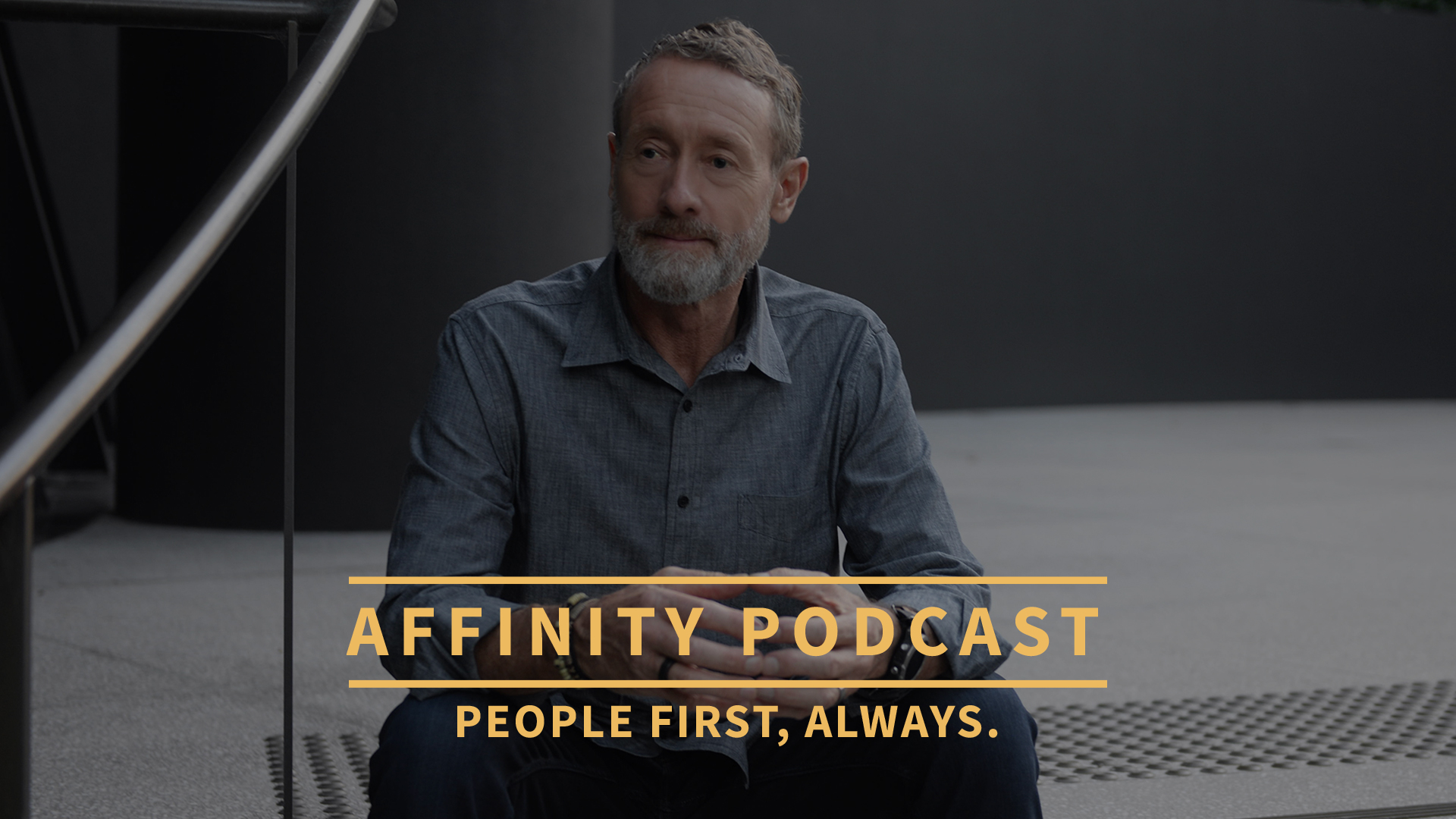Dashboards are Dead. AI-Driven Business Intelligence is the Future.

Grant Ian Gamble is a best-selling mindful leadership author and speaker. He has over 30 years of experience in leading teams to create innovative customer experiences, building engaged workforces, and developing leaders who prioritize mindfulness in their approach.
When I read “Dashboards are Dead”, a recent ThoughtSpot headline, it made me cringe.
Our product, AFFINITY OS™, uses dashboards to visualize the data our AI engine collects from customers/members and team members of our clients’ businesses. Did this mean we needed to rethink the UX, and/or the BI (Business Intelligence) that brings our data into focus?
As ThoughtSpot said in their opening paragraph, “For more than 20 years, dashboards served as a foundational element of business intelligence, helping leaders visualize and share valuable data across their organization.”
ThoughtSpot then went on to say, “At inception, dashboards were the perfect vehicle for delivering key report KPIs without data workers needing a background in coding or IT. But much has changed over the last two decades, including the appetite and needs of business users.”
They go on to cite that 67% of executives aren’t comfortable accessing or using data from their existing dashboard resources.
They point out that it takes on average 4.5 days for a dashboard report to be populated.
And that 50% of data budgets is wasted by remedial data tasks versus analysis.
And then I breathed a sigh of relief.
In Chapter 6 of the article, they point out that the future of data analytics is AI-driven. BI and dashboards aren’t dead, they’re using AI to transform their data into actionable business insights.
And that is exactly how AFFINITY OS works. We use AI to do all the heavy lifting, analyzing customer feedback and team engagement in real time. We use BI to bring this feedback into focus. We use a combination of AI and BI to recommend and prioritize actions in a paint by numbers approach that drives customer experience, retention, referrals, team engagement and growth. Our AI engine also illuminates trends that will impact financial performance and these lead indicators allow you to proactively address these opportunities or threats.
The Future of BI and AI
The integration of BI and AI is an ongoing trend. As AI technology continues to develop, we continue to create even more powerful tools that combine live data analysis, forecasting, and automation to give your business a significant competitive edge.
If you want to know more about AI and BI in action, feel free to reach out to me for a demonstration of AI-driven insights use-case roadmap discovery session.

 Interested in learning more about how to transform your organization’s approach to team member engagement and customer experience? Reach out to our team at AFFINITY OS, specialists in AI-driven customer experience and team member engagement optimization.
Interested in learning more about how to transform your organization’s approach to team member engagement and customer experience? Reach out to our team at AFFINITY OS, specialists in AI-driven customer experience and team member engagement optimization.

Dive into the heart of exceptional leadership and customer-centric success with AOS Academy. Our certification courses, guided by the “PEOPLE FIRST, ALWAYS” mantra, are designed to support professionals as mindful, effective leaders and service providers.
By integrating key insights from Grant Ian Gamble’s best-selling mindful leadership book, “The Affinity Principle”, we focus on nurturing people-centric cultures of empathy, effective communication, and customer service excellence.
The AOS Academy is more than just training – it’s a journey towards personal and professional transformation, ensuring every interaction and decision is rooted in understanding and valuing people first.
Put PEOPLE FIRST, ALWAYS and watch your business flourish.
Dive deep into the latest trends in customer experience and team engagement, mindful leadership and management. Discover practical tools and strategies that you can use to build a people-centric culture, the foundation for sustainable long-term business growth and success.
Led by mindful leadership expert, Grant Ian Gamble, a best-selling author and true visionary with over 30 years of experience in leading teams to create innovative customer experiences, building engaged, inspired and fulfilled workforces, and developing leaders who prioritize genuine connection in their approach.
The guiding principle behind all of Grant’s work is PEOPLE FIRST, ALWAYS.

More Articles:
Unlocking Your Potential with Health Coaching: A Comprehensive Guide to Transforming Your Health and Well-being
In today’s fast-paced, health-conscious world, many individuals are seeking personalized guidance and support to achieve their wellness goals. Health coaching has emerged as an effective and empowering solution, helping clients navigate the complexities of nutrition, exercise, stress management, and more. In this article, we’ll delve into the incredible benefits of health coaching and how it can reshape your approach to health and well-being.
Team Member (aka Employee) Engagement
Team member (aka employee) engagement is crucial to the success of any business. It not only boosts productivity but also enhances team member satisfaction and reduces turnover. With the increasing importance of engagement in today’s workplace, it’s essential to focus on creating a people-centric company culture through mindful leadership and always putting people first.
What is team member engagement, and why is it important?
9 Trends Shaping the Workplace in 2023: How Leaders Can Become Employers of Choice in a Competitive Talent Landscape
The workplace landscape has shifted dramatically over the past two years. The COVID-19 pandemic has forced businesses to adapt to remote work and hybrid models, and team members have been feeling the effects of burnout more than ever before. In 2022, business leaders were faced with unprecedented challenges, and 2023 is no different. However, how organizations respond to these challenges could determine whether they become an employer of choice.








